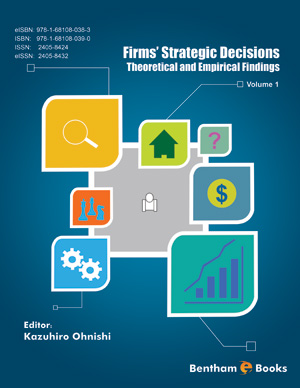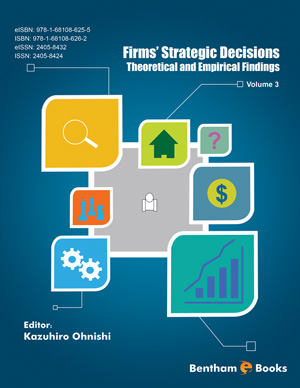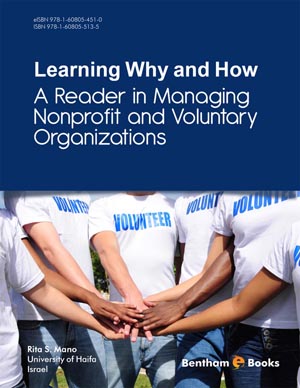List of Contributors
Page: vii-vii (1)
Author: Matjaž Mulej and Robert G. Dyck
DOI: 10.2174/9781608058747114010003
Introduction - Cultural Innovation for Social Responsibility Stimulated by the Global Occupy Movement and the European Union
Page: viii-xxv (18)
Author: Matjaž Mulej and Robert G. Dyck
DOI: 10.2174/9781608058747114010004
PDF Price: $15
Abstract
There are many lines of thought and action supportive of social responsibility as every person’s responsibility, for a new way out of the current human crisis, and for continuing social benefit. The Occupy Movement of 2008 has already identified cultural innovation and social responsibility as the way beyond neo-liberalism. It therefore is fitting to highlight it as we begin this book. The Foreword begins with The Declaration of Occupy Wall Street (OWS) and its implications for the economy, politics, and the environment. OWS is constructing a counterculture with youth, labor, and minority activists as part of a global movement for freedom, democracy, and economic justice. Analysis by the US Census Bureau shows that one of every six Americans lives under the official poverty line. Further sharp increases in poverty and child poverty are projected.
Class warfare against the poor and the programs that support them began in the 1960s, and still continues (Piven, 2011). America’s ongoing jobs depression is the worst since the 1930s (Reich, 2011), but government action as a purchaser of last resort is blocked by market fundamentalism (Sachs, 2011). Enormous disparities in wealth are rampant and growing all over the world as well as in the US (Dyck, Mulej, and coauthors, 1998).
While OWS has no fixed targets, it recognizes that the economic system is out of control. Financialization is a key culprit (Chomsky, 2011). An emergent antidote, in the US and Europe, is a tax on financial transactions (Bottari, 2011). Tax havens should also be shut down (Palan, Murphy, and Chavagneux, 2010). Referenda in Boulder and Madison have called for a federal Constitutional amendment to eliminate corporate personhood and the status of money as free speech (CommonDreams.org, 2011).
OWS already has inspired a well-publicized walkout from Harvard’s neo-liberal Econ 10, taught by Gregory Mankiw, the 25th most widely cited economist in the world today (Inskeep, 2011). Frances Fox Piven has called for a movement for a new moral economy (2011). Recent contributions by Rist (2011), Econ4 (2011), and Dyck (2011) support the emergence of a new economic model.
Research by Vitali, Glattfelder, and Battison (2011) reveals the main outlines of the global network of influential corporations, showing high levels of connectivity in terms of ownership, particularly in a small central core of 20 corporations. Stiglitz (2010) shows the dangers of bankruptcy cascades in highly integrated global financial institutions. Henry (2012) shows in his report to the Tax Justice Network (London) that a global super-rich elite has hidden between $21and $32 trillion of wealth in offshore tax-free havens. The lower figure, $21 trillion, is equivalent to the GDPs of Japan and the US combined. If just $21 trillion were taxed, the economic problems of the Euro zone and Africa could be solved.
ISO 26000 on Social Responsibility (ISO, 2010) articulates a systemic cybernetic process, which will be elaborated in this book, for the emergence of a new socioeconomic model based on social responsibility. In October 2011 the European Union published its official support to social responsibility, urging its member states, large enterprises, and other organizations to work toward more social responsibility as the solution to the current economic crisis, and the beneficial way forward for individuals, organizations, and nations (European Union, 2011).
Radical Innovation of Values, Culture, Ethics, and Norms Required for Social Responsibility
Page: 2-14 (13)
Author: Matjaž Mulej and Robert G. Dyck
DOI: 10.2174/9781608058747114010005
PDF Price: $15
Abstract
Without social responsibility (SR), our current civilization hardly has a chance to survive. SR covers in ISO 26000 (ISO, 2010) seven core subjects (see Fig. 1). It links all of them with consideration of: (1) interdependence as the basis, and (2) holism as the top intention, achievement, and pre-condition of success, based on interdependence. We prefer no limitation of SR to companies; they follow influential humans’ decisions. SR is a human attribute. Interdependence makes humans honest and leads from one-sidedness to (requisite) holism. This leads out from the current crisis of affluence and its blind alley, while SR reaches far beyond neoliberalism and charity.
Human and Organizational Social Responsibility
Page: 15-89 (75)
Author: Matjaž Mulej and Anita Hrast
DOI: 10.2174/9781608058747114010006
PDF Price: $15
Abstract
The neoliberal capitalism, that has denied SR, caused the current crisis by creating a ‘Bubble Economy’ with monopolism that provides chances only to a small minority of population, leaving 85% of humankind under six USD a day and hence angry and envious, or without ambitions. The natural carrying capacity of the Planet Earth to support the destructive living style of the current civilization has been overburdened several decades ago. The increase in standard of living after the 2nd World War has been fictitious because the huge costs of maintenance of the natural preconditions for humankind to survive have been postponed and piled up rather than covered in real time.
The unavoidable renewal of these preconditions may cost more than both world-wars combined, if the action is immediate; or even 20% of the world-wide GDP, if the action is postponed for another 20 or so years. The increase of standard of living after the 2nd World War has been fictitious, also, because of growing and hidden debts of countries of the socalled developed world. These debts are now made visible around the world. They also require RH and hence SR. In other words, the lack of SR that has destroyed the slavesowning and feudal societies and has created room for democracy and free-market economy – is surviving, and as called financial, neoliberal or feudal capitalism. Legal names are different, not much else. This is why SR is so much needed and discussed today.
Crisis? What Crisis?
Page: 90-156 (67)
Author: John Raven
DOI: 10.2174/9781608058747114010007
PDF Price: $15
Abstract
The first part of this chapter brings together material suggesting that the current financial “crisis” may well have been engineered to strengthen the hand of a relatively small group of people who use international financial institutions to manage the planet more generally. It is concluded that, behind the financial crisis lies a public management crisis. The second part discusses the interlinked crises in our habitat. It seems that we have to radically innovate the way we live if we are to survive as a species. In part three it is suggested that these interlinked crises are even more deeply embedded in human societal organisation than had been suspected. The trend toward centralised command-and-control management of human societies appears to have been proceeding inexorably since time immemorial. This itself appears to require the invention of more and more useless work to create the divisions which compel people to participate in the destructive activities which pre-occupy most societies. The financial and management crises then appear as symptoms of dysfunctional social organisation, not as crises that can be addressed directly. Most of Part III is devoted to outlining ways in which the socio-cybernetic processes involved may be studied and the results used to design more appropriate socio-cybernetic (governance) systems.
Towards A New Economic Paradigm: The Parallel History of Economic Thought and the Way Forward
Page: 157-186 (30)
Author: Gergely Toth
DOI: 10.2174/9781608058747114010008
PDF Price: $15
Abstract
Few dispute that the current socio-economic system is in troubles. Sustainable development is running high – at least at the level of lip service. But we are far from consensus in specifying why and how our current development path is unsustainable. In this chapter I argue that the world is on the edge of a radical change of values (as it happened already 4-5 times in our known history). And that the deep core of the problem is our irrational (or rationalizing) adherence to the self-oversurviving value system. I try to find this value system in the current paradigm, economism, which has passed its competence to a drammatical extent. This I consider rather a quasireligion, than a science. As an alternative I depict the recently less visible, but more than two thousand year old tradition of moral economics. Two new economic philosophies are also proposed, which are at the end.
Introduction
Current global economic crises call for social responsibility to replace neo-liberalistic, one-sided and short-term criteria causing monopolies of global enterprises. Humanity’s existence is endangered under the threat of global capitalism, unless the positive concept ‘everyone’s social responsibility impacts everyone in society’ becomes the basis of the new socio-economic order. This concept must be realized together with related concepts of ‘interdependence’ and ‘holism,’ embodying the principles of accountability, transparency, ethical behavior, and respect for stakeholders--to support the rule of law, international norms, and human rights. Social Responsibility – A non-technological innovation process explores the realm of social responsibility in the context of innovation, business practice and economic crises. Readers can apply related principles to their business practices and enhance their business prospects in a modern environment facing the challenges of socio-economic crises. This volume is intended for graduates and professionals working in government organizations and commercial enterprises, to learn basic concepts about social responsibility and introduce holistic management practices in their daily and professional lives.









.jpg)


